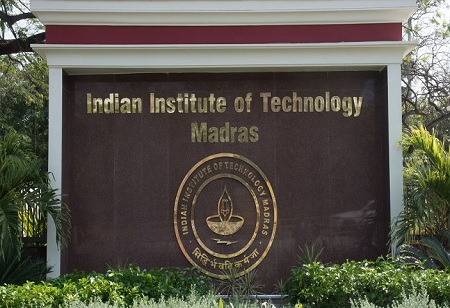The United Kingdom is eager to welcome an Indian Institute of Technology (IIT) to establish an offshore campus in the country, and some U.K. universities are already in talks with IITs to explore the possibility. Several universities in the United Kingdom are also interested in establishing branch campuses in India and are awaiting the final regulatory framework from the University Grants Commission (UGC) before proceeding formally, they said, adding that with five U.K. universities having campuses in Malaysia, the country has the expertise.
There has certainly been discussion about IITs establishing campuses abroad. We have spoken with the Indian High Commission in London because we believe that nothing better represents the genuine two-way nature of the relationship between the two countries than IITs or other top institutions in India deciding to establish campuses in the United Kingdom. As a result, we are very open to it "Steve Smith is the United Kingdom's International Education Champion. "I know that quite a lot of U.K. institutions have talked to IITs about whether that would be a possibility. So again, it's not going to be happening tomorrow but I do think that's the trend for how the relationship will develop", he added. Mr. Smith is leading the largest-ever delegation of universities and education leaders from the United Kingdom to India for a five-day visit to meet key stakeholders and discuss the internationalization of higher education institutions through partnership, dual degrees, and expanding research collaborations.
Two IITs have already announced plans to establish offshore campuses and have signed formal agreements to do so. While IIT Madras is establishing a campus in Zanzibar, Tanzania, IIT Delhi is establishing an offshore campus in Abu Dhabi. When asked if UK universities are looking into establishing campuses in India, Mr. Smith said, "The straightforward answer is yes. There is a lot of curiosity. But, of course, you must have the regulatory framework in place, because no governing body anywhere in the world will commit to that unless the regulatory framework is agreed upon, signed, and sealed. So, in the last two or three years, we've made significant progress toward that goal". The UGC announced draft regulations for foreign universities wishing to establish campuses in India in January of this year. However, the final regulations have not yet been made public. Alison Barrett, Director of India, British Council, said, "I can assure you that while a lot of the universities are thinking about long-term physical presence, again, we need to get everything finalised. So that there are no roadblocks. We are very interested in seeing that happen here and also, of course, Indian institutions opening in the U.K". "We are very excited because the future is about genuine two-way partnerships. Thus, branch campuses and physical presences are very attractive to us. But again, once we have got the regulations the U.K. has a lot of expertise in that area as well. If you look at Malaysia there are five U.K. universities that are very well established there. So there is a lot of expertise within the U.K. university network of doing that. Hence, they are really interested in this opportunity in India as well", Ms. Barrett added.
The two officials, however, refused to divulge names of the universities exploring the collaborations in the two areas. The delegation, coordinated by the Department for Business and Trade (DBT), arrived in India on September 17. It includes representatives from 31 U.K. higher education institutions and bodies. On September 18 and 19, the delegation attended the British Council's India-UK Higher Education Conference in Delhi. The discussions centered on transnational education and facilitating the expansion of higher education partnerships between the two countries' institutions. Ms. Barrett stated that improving educational quality and internationalization are important parts of the ongoing discussions. The delegation will also delve into transnational education and share insights into the scope and opportunities presented by the UGC's foreign collaboration regulation and mutual recognition of qualifications. There will also be discussions about the opportunities for two-way student mobility.

